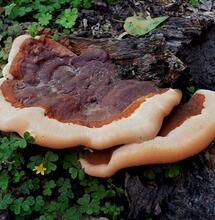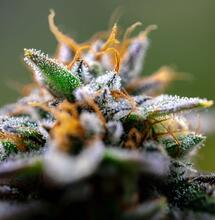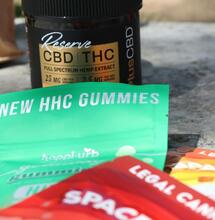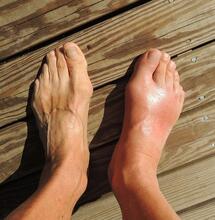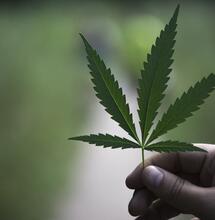Physicians Lack Knowledge of Medical Marijuana
.jpg)
A recent survey reconfirms that a majority of physicians in the US do not have the necessary medical marijuana knowledge so they can guide patients with appropriate therapies. The new survey data was collected from researchers affiliated with the University of Michigan at Ann Arbor; it included more than 200 medical professionals, and the results were published in the journal Cannabis and Cannabinoid Research.
Many medical cannabis users do not trust healthcare providers regarding cannabis advice. Most patients do not even discuss their cannabis use with their doctor. Part of the reason is that most people have the impression that medical professionals lack fundamental knowledge on cannabis and its medicinal properties. And they are not far from the truth.
A new study assessing physicians' readiness to respond to the needs of patients regarding medicinal cannabis portrays a grim picture that medical professionals do not receive sufficient education on the subject of Cannabis. Most physicians simply do not possess adequate knowledge and insights that can help them integrate medicinal marijuana into treatments with patients.
The new survey findings are published in the paper "Physicians' Attitudes and Practices Regarding Cannabis and Recommending Medical Cannabis Use." The study involved 244 participating physicians and was conducted by researchers affiliated with the University of Michigan at Ann Arbor.
As noted by the researchers, the study "assesses how physicians interact with patients regarding cannabis in their day-to-day practice, and whether and how they address important topics such as use patterns and substituting cannabis for medications."
The researchers also came up with a hypothesis that the surveyed physicians would generally perceive dispensary staff and caretakers as less competent in addressing patient's health needs and would be unlikely to use their recommendations. The study results proved their predictions to be true.
The data from the physicians was gathered via an anonymous online survey. Participating physicians were selected from a university-affiliated health system. The survey questions were designed to gauge doctors' experience in cannabis education, self-perceptions on medicinal cannabis knowledge, and the content of cannabis-related discussions with patients. Questions also included physicians' perceptions of medical cannabis dispensary staff, medical cannabis caregivers, and who influences patients most.
It's interesting that from previous research we know that a lot of patients are prone to not talk about cannabis with their healthcare providers at all.
The current research found that only 10% of physicians had ever authorized medical cannabis for their patients. Physicians who engage in cannabis-related conversations with their patients were most likely to talk about risks (63%) and harm reductions (25%). Perhaps the most important topic, about dosages in cannabis therapies, was tackled only by 6% of physicians.
The survey further reveals that physicians perceived their influence on patients as "weak" compared to other sources of cannabis information. Most also said they had "low knowledge and competence" regarding medicinal cannabis. Consistent with the researchers' predictions, physicians had "generally unfavorable attitudes" toward staff working in medical cannabis dispensaries and medical cannabis caregivers.
The study concludes that insufficient knowledge is the most common reason why physicians would not go ahead with medical cannabis recommendations for patients. The paper conclusion goes on to say that "greater integration of medical cannabis knowledge is needed at all levels of medical and clinical education" in order to help patients better and be more guided with cannabis therapies.
The study authors also recommend that "Continued research is needed to provide a strong scientific basis for developing treatment guidelines and standardized medical education for medical cannabis use."
The survey results are consistent with previous research on the medicinal use of cannabis and healthcare providers.
Similar research from last year, which included 145 internal medicine residents from the Mount Sinai Morningside-West program, revealed that the majority lacked sufficient training on medical cannabis. In numbers, 93% of respondents reported that they were not familiar enough with the overall effects of cannabis, 97% said that they did not have enough knowledge on medical conditions that cannabis can help treat, 83% answered they did not have reliable sources where to study cannabis and 92% thought that medical cannabis education should be a subject part of their curricula.
A 2018 study published in the Journal of Drugs in Dermatology specifically looked at dermatology providers and their knowledge, attitudes and perceptions on therapeutic cannabinoids. The study involved 531 medical experts in skin diseases, 64% of whom said they did not know CBD is non-psychoactive and 29% were not aware THC is psychoactive. While these specific figures from 2018 might have changed in the meantime, they add to the evidence that medical professionals in general, across different practices and specialties, lack access to up-to-date education on cannabis.
In sum, medical education programs across every field of medical practice desperately need to include more meaningful and insightful information on cannabis and keep pace with the times.

